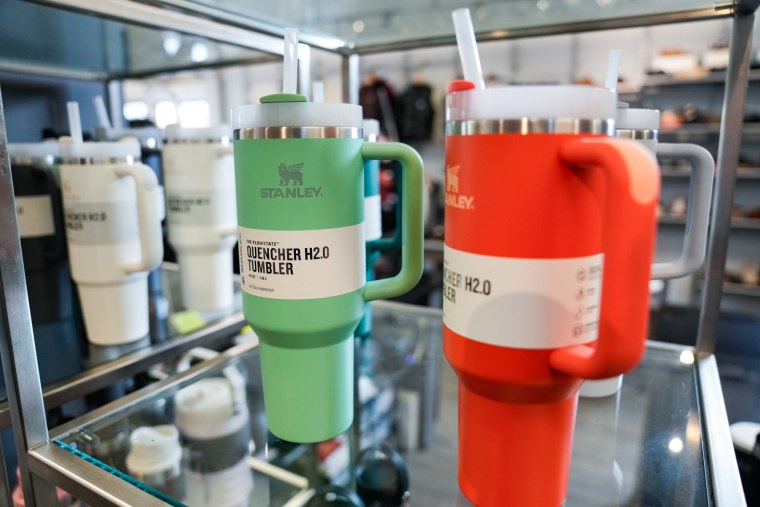The parent company of viral sensation Stanley tumbler quenchers is being sued over claims that it deceived customers over the presence of lead in the products.
The suit, filed earlier this month as a potential class-action case by a Seattle-based firm, alleges Stanley parent Pacific Market International did not publicly confirm the presence of lead in the products until this January.
In that statement, PMI said the stainless steel vacuum seal insulation at the bottom of each tumbler covers a pellet that contains lead, some of which is melted during the manufacturing process.
But the potential for exposure to a user is minimal, PMI said.
“Rest assured that no lead is present on the surface of any Stanley product that comes into contact with the consumer nor the contents of the product,” the statement said, adding that its team was also working on a lead alternative for the component.
However, the suit alleges, if the tumbler is damaged or worn, the seal can break and potentially expose the user to lead.
The "quencher" version of the Stanley tumblers have gone viral over the past year thanks to their colorful, Instagram-ready looks. CNBC reported last year that the products now bring in some $750 million in annual revenues.
More recently, clips of Stanley drinkers using at-home lead testing kits on their products have also gone viral.
But experts told NBC's Today show last month that the reliability of those tests is questionable, and that the odds of serious lead exposure are negligible.
"There really is practically zero risk of you ingesting any of the lead that’s in this cup,” Jack Caravanos, doctor of public health and professor of environmental public health sciences at New York University’s School of Global Public Health, told Today.
Nevertheless, the suit alleges that even in its January statement, Stanley and PMI continued to mislead customers because it did not warn consumers about the potential for exposure from damage to the vacuum seal. Nor did PMI disclose how much lead is present in each tumbler cup.
“As the manufacturer and designer of these products, the Stanley Defendants knew or reasonably should have known about this lead issue for years but chose to conceal it from the public presumably to avoid losing sales,” the suit alleges.
In addition to an order demanding Stanley stop its allegedly deceptive practices, the suit also seeks unspecified damages.
PMI did not immediately respond to a request for comment.

